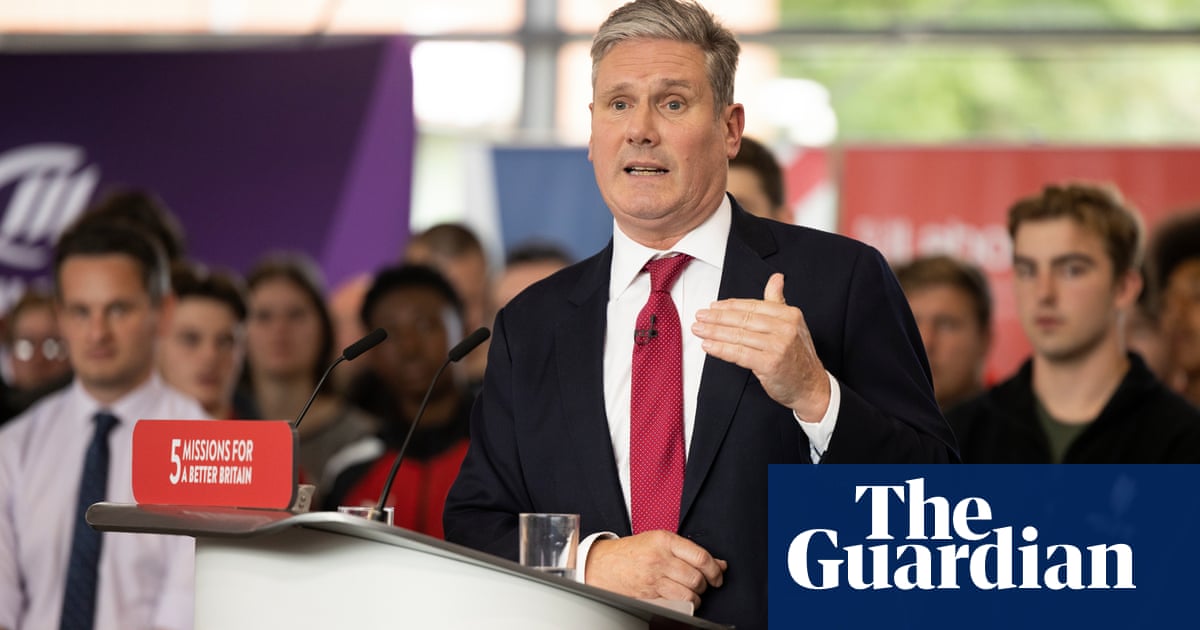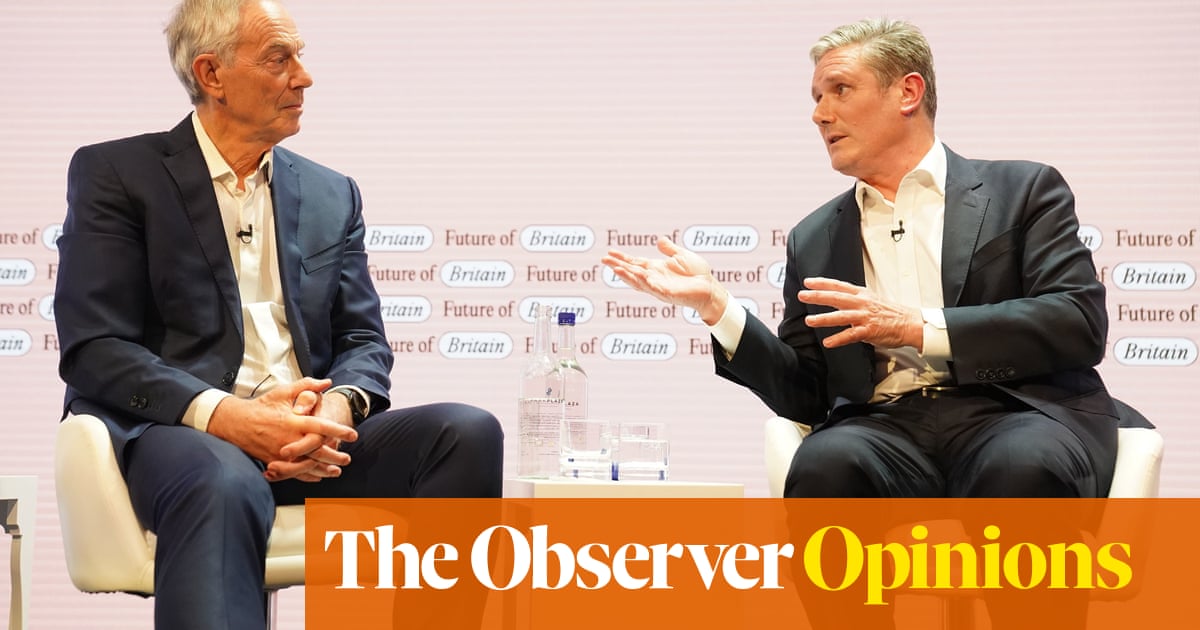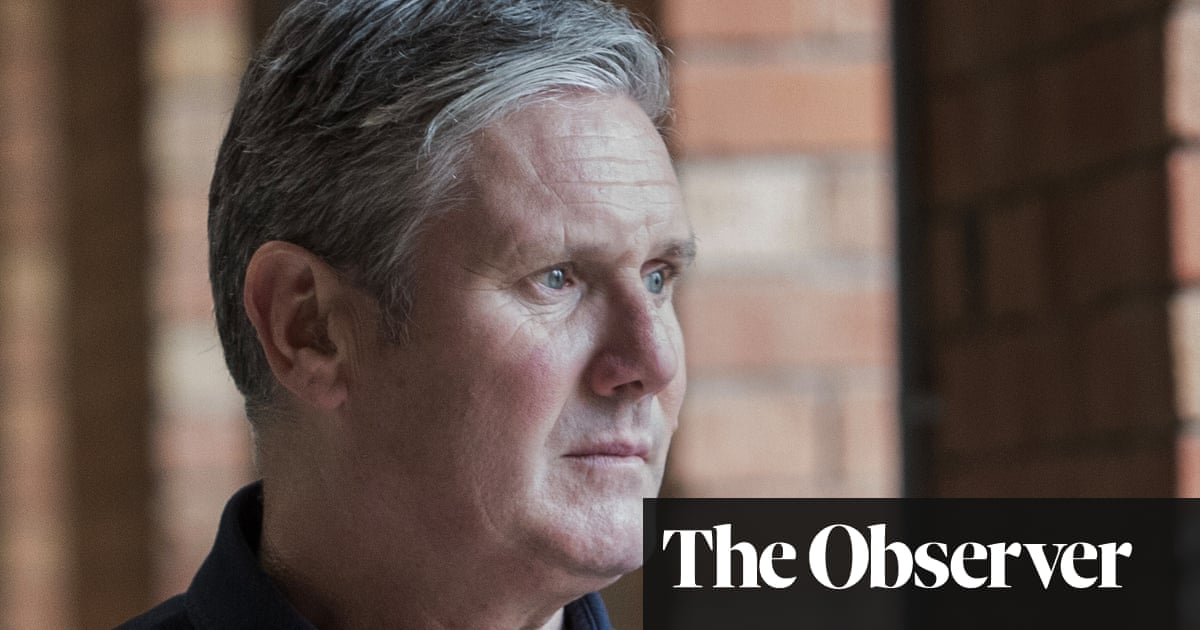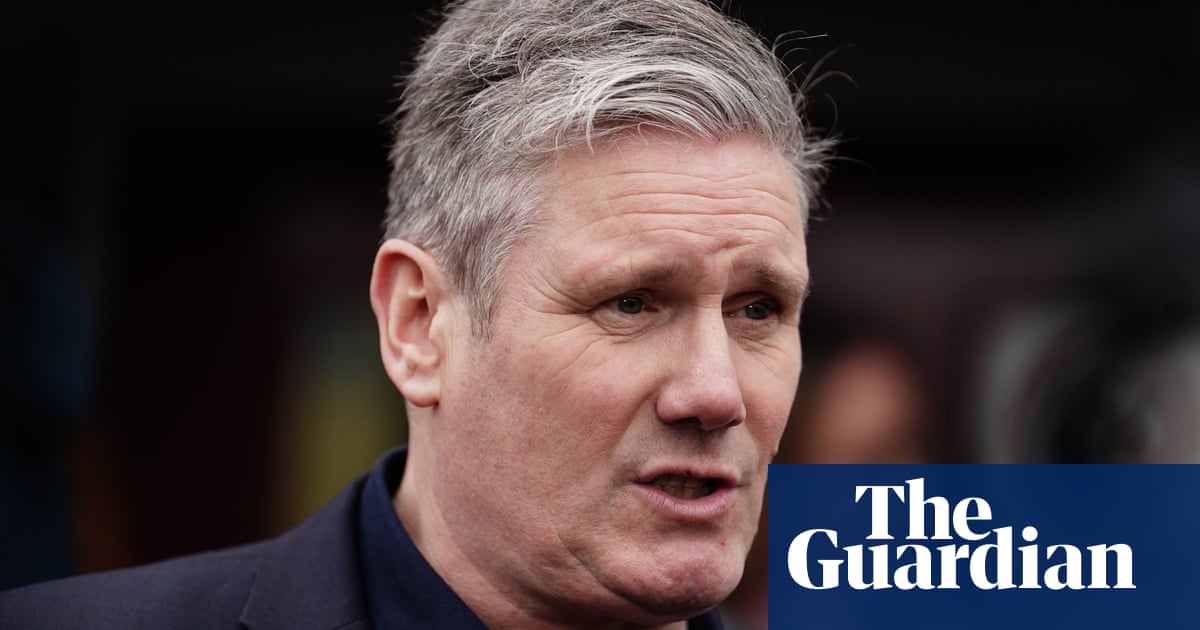
Tony Blair has urged Keir Starmer’s critics to “cut him some slack” and backed his stance on business taxes, after a backlash over comments from Starmer that appeared to suggest Labour was against taxing corporations to pay for the pandemic.
Labour clarified its position on Thursday, with the shadow chancellor, Anneliese Dodds, and shadow foreign secretary, Lisa Nandy, publicly suggesting that the party was prepared to back business tax increases as long as they were not implemented immediately.
Party sources said they would also look at any plans put forward by Rishi Sunak at next week’s budget for a windfall tax on firms that have profited from the pandemic. “We’ll look at the detail of what the chancellor proposes, but we don’t think there should be tax rises right now,” said a source.
Starmer’s comments on Wednesday that “now is not the time for tax rises on families and businesses” irritated some colleagues who felt they could be bounced into opposing plans mooted by the chancellor to increase corporation tax at next week’s budget – a policy Labour has previously proposed.
In an interview with the Guardian, Blair, the last Labour leader to win a general election, praised Starmer and warned his party critics not to underestimate the challenges of being the opposition leader during the pandemic.
“I think where people have got to cut him some slack and be fair to the guy is, it’s the government that matters at the moment,” he said. “The public have no interest at all in mouthing off as if you’re in normal political times, because they know you’re not.
“I think he’s done a very good job. I think he has actually been pretty judicious in being critical where he needs to be, constructive most of the time,” Blair said.
Asked about Starmer’s comments on tax, which were criticised by leftwing MPs and the grassroots campaign group Momentum, he said: “I think he’s perfectly sensible to say that. I always used to say to people when I was leading the Labour party, the Labour party’s problem is not that people don’t think you’ll put their taxes up.”
The former Tory leader, David Cameron, added his voice to those warning Sunak not to seek to balance the books, writing in the Times that immediate tax increases “wouldn’t make any sense at all”.
Blair predicted that the next general election would not be fought on the territory of tax and spend that has dominated many recent contests, or on the government’s handling of the pandemic, but on “who’s got the best plan for the future”, including how to respond to rapid technological change.
Labour strategists are wary of being dragged into a messy debate about who should pay for the crisis, when many international experts are warning against tax increases or spending cuts while economies are still deep in recession.
Answering questions after a pre-budget speech to UCL’s Institute for Global Prosperity on Thursday, Dodds said: “If government is saying they will be immediately imposing tax changes on the UK, I do think that’s the wrong decision. That is going against the vast bulk of what expert commentators are saying. If we’re talking about a longer-term trajectory then let’s have that discussion, let’s make sure we do have that more effective tax system.”
However, she warned the government that measures to force through increases in corporation tax would deliver a “hammer blow” to families across the country as they struggled with the fallout from Covid-19.
“That is the wrong decision to be taking right now,” she said. “The UK government’s focus should be on jobs, growth and preserving economic activity. We have had the worst economic crisis of any country in the G7, so we need to be focused on reversing that decline.”
Nandy, speaking on the BBC, said Labour still believed it would be possible to increase corporation tax without compromising the UK’s competitiveness, but she added: “There will be a time for raising taxes, doing it fairly and paying down the debt – but that time is not now.”
Voices from across the political divide and mainstream economists have been broadly united over the need to delay tax rises until an economic recovery from the worst recession in 300 years fully takes hold, despite record public borrowing triggered by the pandemic.
Sunak is expected to confirm the biggest peacetime shortfall in the public finances at next week’s budget as the cost of responding to Covid pushes the budget deficit close to £400bn this year.
However, pressure is mounting for a tougher stance as the pandemic drives up rates of inequality and fuels bumper profits for some firms, including the outsourcing giant Serco, which said on Thursday it had raked in £400m from Covid-related work including running the government’s test-and-trace programme.












